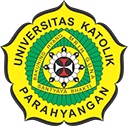Regulation of the Minister of Education, Culture, Research, and Technology Number 53 of 2023 concerning Quality Assurance in Higher Education, Article 6 states that:
- Graduate competency standards are minimum criteria regarding the unity of attitude, skills, and knowledge competencies that demonstrate student achievement from their learning outcomes at the end of a higher education program.
- The graduate competency standards referred to in paragraph (1) are used to prepare students to become members of society who are faithful, devout, have noble character, and are in accordance with
- the values of Pancasila, capable and independent in applying, developing, and discovering science and technology that are beneficial to society, as well as actively developing their potential.
- The graduate competency standards referred to in paragraph (1) are formulated in graduate learning outcomes.
Permendikbudristek No. 53 of 2023 article 7 states that:
The graduate learning outcomes referred to in Article 6 paragraph (3) for each study program include competencies covering:
- Mastery of science and technology, specific skills/abilities and their application to one (1) or a group of specific fields of science;
- General skills required as a basis for mastery of science and technology and relevant fields of work;
- Knowledge and skills required for the world of work and/or continuing studies at a higher level or to obtain a professional certificate; and
- Intellectual ability to think independently and critically as lifelong learners
Permendikbudristek No. 53 of 2023 article 8 states that:
- The learning outcomes of graduates as referred to in Article 7 are compiled by the study program management unit with the involvement of:
- Stakeholders; and/or
- The business world, industry, and the world of work.
- The learning outcomes of graduates as referred to in paragraph (1)
- Take into account:
- The vision and mission of the higher education institution;
- The Indonesian national qualification framework;
- Developments in science and technology;
- The competency requirements of the world of work;
- The academic field of the study program;
- The core competencies of graduates of the study program; and
- The curriculum of similar study programs.
- The learning outcomes of graduates as referred to in paragraph (1) shall be communicated to students in the study program.
- The learning outcomes of graduates as referred to in paragraph (1) shall be incorporated into the courses in each study program.
- The courses referred to in paragraph (4) shall have course learning outcomes that contribute to the learning outcomes of graduates.
Ministry of Education, Culture, Research, and Technology Regulation No. 53 of 2023, Article 9 states that: The core competencies of graduates of a Master’s program as referred to in Article 8 paragraph (2) letter f must meet the following requirements: at least mastering the theory of a specific field of knowledge to develop science and technology through research or the creation of innovative works.
Ministry of Education, Culture, Research, and Technology Regulation No. 53 of 2023, Article 10 states that:
- The core competencies of graduates of a study program as referred to in Article 9 are developed by the relevant study program association in collaboration with other relevant parties.
- In the event that the relevant study program association as referred to in paragraph (1) has not yet been established, the core competencies of graduates of the study program are developed by the higher education institution.
The Indonesian Master of Management Program Alliance has established the Learning Outcomes for Master’s Programs in Business and Management in Indonesia as follows:
The Learning Outcomes for graduates of Master’s programs in Business and Management are a combination of attitudes, knowledge, and skills that include the following competencies:
- Able to develop knowledge, theory, and conceptual frameworks of management and business;
- Ability to solve organizational problems through management and business studies using an interdisciplinary or multidisciplinary approach; and
- Ability to manage organizations by applying knowledge, theory, and conceptual frameworks of management and business that are beneficial to the interests of society.
In accordance with the graduate competency standards and the Indonesian National Qualifications Framework (KKNI), Permendikbudristek Number 53 of 2023, the formulation of the Learning Outcomes (CPL) of the MM UNPAR Study Program consists of 4 (four) components, namely: Attitude (A), General Skills (GS), Knowledge Mastery (KM), and Specialized Skills (SS).

